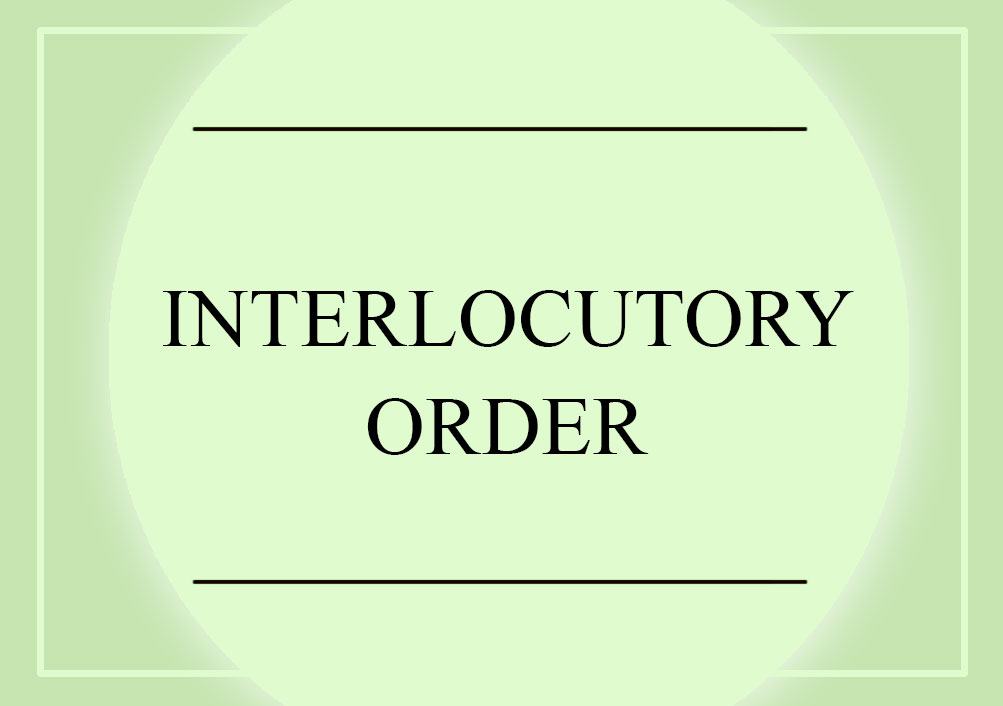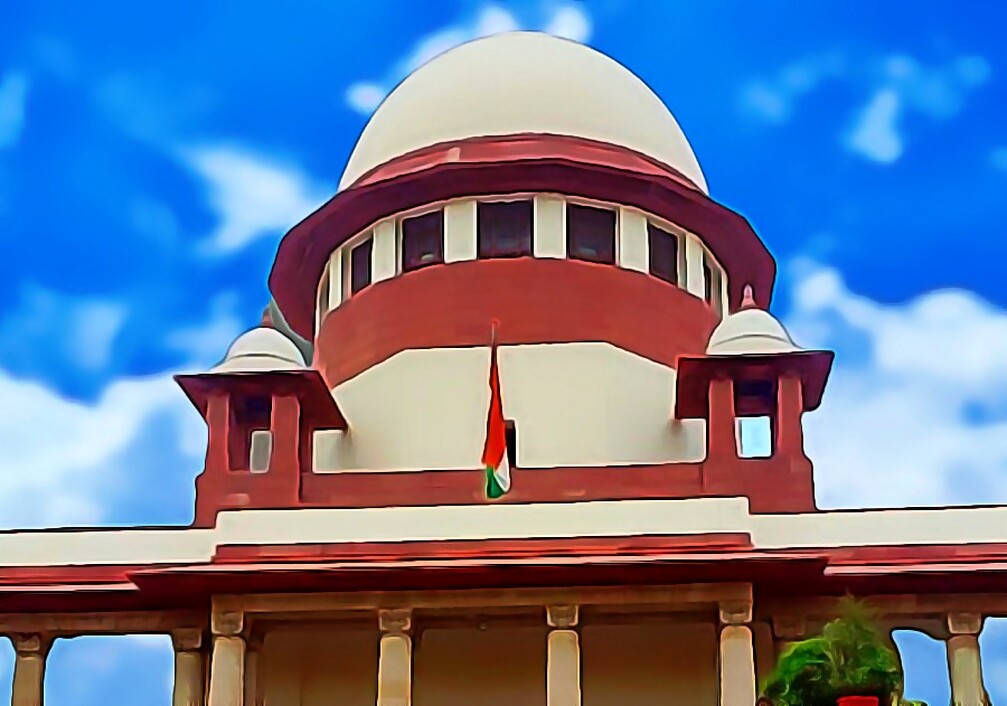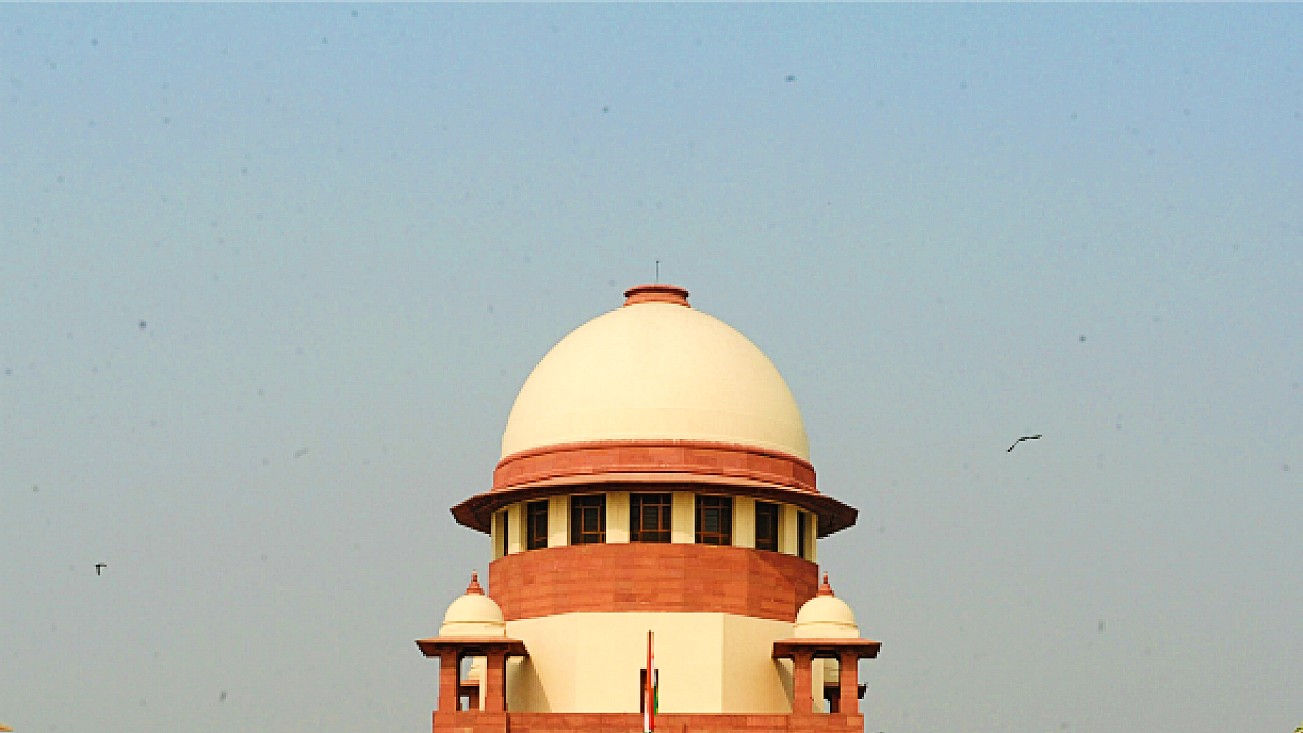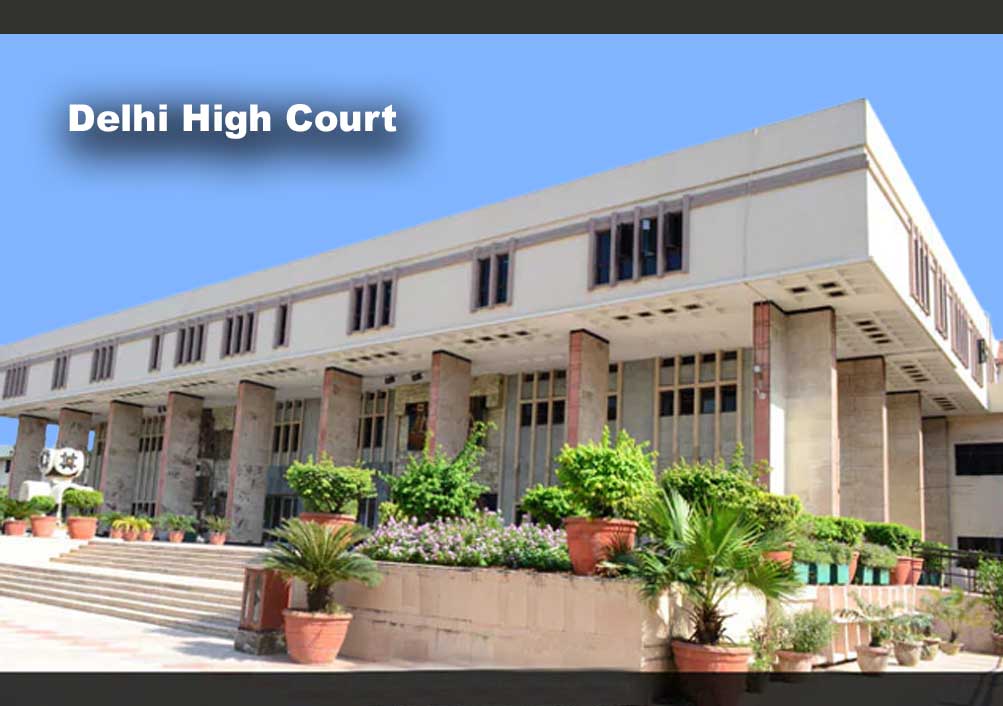Case Laws: Whether Order of summoning of witnesses in criminal complaint an interlocutory order and amenable to Revision jurisdiction?

(High Court of Punjab and Haryana) | 22-07-2020
In this case, it was observed by court that in a catena of case laws it has been well laid down that the High Court has no power to revise an interlocutory order by resort to the provisions under Section 397 Cr.P.C., 1973 and where even inherent powers under Section 482 Cr.P.C., 1973 cannot be exercised. It was on the basis of 14th and 41st reports of Law Commission, which forms the basis of amended Code of Criminal Procedure 1973, which suggested revolutionary changes in the powers of the High Court. The primary object and reason taking away the powers of revision against interlocutory orders was considered must as it was one of the main contributing factors for delay in disposal of the criminal process. Court also cited Amarnath’s Judgment where it has been observed that order of summoning witnesses amount to interlocutory orders
Relevant Para is as follows:-
“7. In Kharati Lal’s case (ibid), the learned Single Judge of this Court had allowed the revision petition against an order by which regular bail granted to the then petitioner Kharati Lal and another was cancelled by the learned Additional Sessions Judge. In a catena of case law in ‘Amar Nath v. State of Haryana; (1977) 4 SCC 137 ; ‘Bhola v. State ; 1979 SCC OnLine All 130; ‘Nilu v. State, 1983 SCC OnLine Ori 149; State of Maharashtrav. Deelipkumar Hirachand Jain; 1999 SCC OnLine Bom 262; and Maya Venkatesan v. State; 2007 SCC OnLine Mad 635, it has been well laid down that the High Court has no power to revise an interlocutory order by resort to the provisions under Section 397 Cr.P.C., 1973 and where even inherent powers under Section 482 Cr.P.C., 1973 cannot be exercised. It was on the basis of 14th and 41st reports of Law Commission, which forms the basis of amended Code of Criminal Procedure 1973, which suggested revolutionary changes in the powers of the High Court. The primary object and reason taking away the powers of revision against interlocutory orders was considered must as it was one of the main contributing factors for delay in disposal of the criminal process. In Amar Nath’s case (ibid), their Lordships have observed as follows:-
“6………….. Thus, for instance, orders summoning witnesses, adjourning cases, passing orders
for bail, calling for reports and such other steps in aid of the pending proceeding, may no doubt amount to interlocutory orders against which no revision would lie under Section 397(2) of the 1973 Code. But orders which are matters of moment and which affect or adjudicate the rights of the accused or a particular aspect of the trial cannot be said to be interlocutory order so as to be outside the purview of the revisional jurisdiction of the High Court.
7. In Central Bank of India v. Gokal Chand (AIR 1967 S.C. 799, 800.) this Court while describing the incidents of an interlocutory order, observed as follows:-
‘In the context of Section 38(1), the words “every order of the Controller made under this Act”, though very wide, do not include interlocutory orders, which are merely procedural and do not affect the rights or liabilities of the parties. In a pending proceeding, the Controller, may pass many interlocutory orders under Sections 36 and 37, such as orders regarding the summoning of witnesses, discovery, production and inspection of documents, issue of a commission for examination of witnesses, inspection of premises, fixing a date of hearing and the admissibility of a document or the relevancy of a question. All these interlocutory orders are steps taken towards the final adjudication and for assisting the parties in the prosecution of their case in the pending proceeding; they regulate the procedure only and do not affect any right or liability of the parties.’
The aforesaid decision clearly illustrates the nature and incidents of an interlocutory order and the incidents given by this Court constitute sufficient guidelines to interpret the connotation of the words “interlocutory order” as appearing in sub-section (2) of Section 397 of the 1973 Code.””
2. Amar Nath And Others v. State Of Haryana & Others2
(Supreme Court of India) | 29-07-1977
In this case, it was observed by the apex court that any order which substantially affects the, right of the accused, or decides certain rights of the parties cannot be said to be an interlocutory order so as to bar a revision to the High Court against that order, because that would be against the very object which formed the basis for insertion of this particular provision in s. 397 of the, 1973 Code. Thus, for instance, orders summoning witnesses, adjourning cases, passing orders for bail, calling for reports and such other steps in aid of the pending proceeding, may no doubt amount to interlocutory orders against which no revision would lie under s. 397 (2) of the 19 73 Code.
Relevant Para is as follows:-
“6. The main question which falls for determination in this appeal is as to, the what is the connotation of the term “interlocutory order” as appearing in sub-s. (2) of s. 397 which bars any revision of such an order by the High Court. The term “interlocutory order” is a term of well-known legal significance and does not present any serious diffident. It has been used in various statutes including the Code of Civil Procedure, Letters Patent of the High Courts and other like stautes. In Websters New World Dictionary “interlocutory” has been defined as an order other than final decision. Decided cases have laid down that interlocutory orders to be appealable must be those which decide the rights and liabilities of the parties concerning a particular aspect. It seems to, us that the term “interlocutory order” in s. 397(2) of the 1973 Code has been used in a restricted sense and not in any broad or artistic sense. It merely denotes orders of a purely interim or temporary nature which do not decide or touch the important rights, or the liabilities of the parties. Any order which substantially affects the, right of the accused, or decides certain rights of the parties cannot be said to be an interlocutory order so as to bar a revision to the High Court against that order, because that would be against the very object which formed the basis for insertion of this particular provision in s. 397 of the, 1973 Code. Thus, for instance, order s summoning witnesses, adjourning cases, passing orders for bail, calling for reports and such other steps in aid of the pending proceeding, may no doubt amount to interlocutory orders against which no revision would lie under s. 397 (2) of the 19 73 Code. But orders which are matters of moment and which affect or adjudicate the rights of the accused or a particular aspect of the trial cannot be said to be interlocutory order so as to be. outside the purview of the revisional jurisdiction o f the High Court.In Central Bank of India v. Gokal Chand(A.I.R. 1967 S.C. 799, 800.) this Court while describing the incidents of an interlocutory order, observed as follows :
“In the context of s. 38(1), the words “every order of the Controller made under this Act”, though very wide, do not include interlocutory orders, which are. merely procedural 228 and do not affect the rights or liabilities of the parties. In a pending proceeding the Controller, may pass many interlocutory orders under ss. 36 and 37, such as orders regarding the summoning of witnesses, discovery, production and inspection of documents, issue of a commission for examination of witnesses, inspection of premises, fixing a date of hearing and the admissibility of a document or the relevancy of a question. All these interlocutory orders are steps taken towards the final adjudication and for assisting the parties in the prosecution of their case in the pending proceeding ; they regulate the procedure only and do not affect any right or liability of the parties.”
The aforesaid decision clearly illustrates the nature and incidents of an interlocutory order and the incidents given by this Court constitute sufficient guidelines to interpret the connotation of the. word “interlocutory order” as appearing in sub-s. (2) of s. 397 of the 1973 Code.
Similarly in a later case in Mohan Lal Magan Lal Thacker v. State of Gujarat([1968] 2 S.C.R. 685.) this Court pointed out that the finality of an order could not be judged by co-relating that order with the controversy in the complaint. The fact that the controversy still remained alive was irrelevant. In that case this Court held that even though it was an interlocutory order, the order was a final order.”
1https://www.legitquest.com/case/mahender–mahtab-singh–mehtab-singh-v-state-of-haryana/1F8E09
2 https://www.legitquest.com/case/amar-nath-and-others-v-state-of-haryana–others/29E5
Sign up for our weekly newsletter to stay up to date on our product, events featured blog, special offer and all of the exciting things that take place here at Legitquest.




Add a Comment